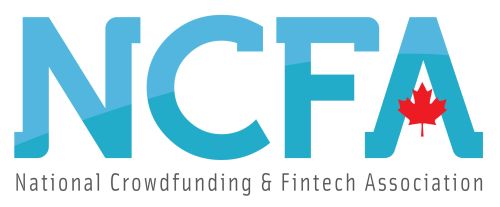Developing Our Policy Ears in 2023
Regs to Riches | | Dec 26, 2022
- A crucial part of our work is reliant on our ability to listen to the pain points and frustrations that people are experiencing and map them back onto regulatory realities; re-articulating the problem in an appropriate policy context. But no one ever really tells you that, because we like to pretend that intellectual work is literal when it’s often figurative. I think that the sources that policy prioritisation seems to have become dependent on are seriously impeding that ability.
- Let’s face it: everyday people just do not use the wonky terms that we revel in.
- Over the past two years, as I have championed the merits of competition reform, I have become convinced that people talk about competition policy ALL the time – they just never use those words.
See: ISED Launches Competition Act Review: Consultation on the Future of Competition Policy in Canada
- More bubble bursting: on top of that, most people see government(s) as “the government,” and could care less about the organisational divisions we relate to across orders of government and ministries. They see problems and want a solution, while we wring our hands over “who” should lead the file.
- It’s probably even thornier from a small business perspective, where entrepreneurs are saddled with the imperative of taking their personal case studies and abstracting those to a specific policy change, which is no mean feat.
- An additional force acting out against individual firms articulating their needs is the fear of speaking out that is common in concentrating industries or simply anywhere that a significant power balance exists. This “FOSO” was well-covered in the AELP report, “The Other Red Tape,” and no, there is not a Canadian version of this report because Canada.
See: Monopoly-Friendly Canada ‘Does Not Treat Competition Policy Seriously’
- Alternative approach: Maybe we need to get over ourselves a little bit, and lean in a little more to the all-of-government approach we see proceeding with some success in the US as it relates to competition.
- That isn’t to suggest that the art of policymaking becomes a total free-for-all, but perhaps more of an invitation model could help us move farther, faster on key items. Policy teams need the freedom to lead while inviting support from relevant ministries and peers.
- Tilting towards more of a ‘champions’ model would allow us to more closely mimic the policy experimentation that we expect to see in our federated model.
Continue to the full article –> here
 The National Crowdfunding & Fintech Association (NCFA Canada) is a financial innovation ecosystem that provides education, market intelligence, industry stewardship, networking and funding opportunities and services to thousands of community members and works closely with industry, government, partners and affiliates to create a vibrant and innovative fintech and funding industry in Canada. Decentralized and distributed, NCFA is engaged with global stakeholders and helps incubate projects and investment in fintech, alternative finance, crowdfunding, peer-to-peer finance, payments, digital assets and tokens, blockchain, cryptocurrency, regtech, and insurtech sectors. Join Canada’s Fintech & Funding Community today FREE! Or become a contributing member and get perks. For more information, please visit: www.ncfacanada.org
The National Crowdfunding & Fintech Association (NCFA Canada) is a financial innovation ecosystem that provides education, market intelligence, industry stewardship, networking and funding opportunities and services to thousands of community members and works closely with industry, government, partners and affiliates to create a vibrant and innovative fintech and funding industry in Canada. Decentralized and distributed, NCFA is engaged with global stakeholders and helps incubate projects and investment in fintech, alternative finance, crowdfunding, peer-to-peer finance, payments, digital assets and tokens, blockchain, cryptocurrency, regtech, and insurtech sectors. Join Canada’s Fintech & Funding Community today FREE! Or become a contributing member and get perks. For more information, please visit: www.ncfacanada.org
Related Posts
- SEO Powered Content & PR Distribution. Get Amplified Today.
- Platoblockchain. Web3 Metaverse Intelligence. Knowledge Amplified. Access Here.
- Source: https://ncfacanada.org/developing-our-policy-ears-in-2023/
- 2018
- 28
- a
- ability
- About
- across
- Act
- Additional
- affiliates
- against
- All
- alternative
- and
- anywhere
- approach
- appropriate
- Art
- article
- Assets
- back
- Balance
- because
- become
- becomes
- Bit
- blockchain
- bubble
- business
- cache
- Canada
- Canadian
- capital
- care
- case
- Case Studies
- Category
- championed
- change
- closely
- Common
- community
- competition
- context
- could
- create
- Crowdfunding
- crucial
- cryptocurrency
- decentralized
- dependent
- developing
- digital
- Digital Assets
- distributed
- ecosystem
- Education
- engaged
- entrepreneurs
- entry
- Ether (ETH)
- EVER
- everyday
- exists
- expect
- experiencing
- Face
- faster
- fear
- feat
- File
- finance
- financial
- fintech
- firms
- Force
- Freedom
- from
- full
- funding
- future
- get
- Global
- Government
- Hands
- help
- helps
- HTTPS
- human
- imperative
- in
- individual
- industries
- industry
- information
- Innovation
- innovative
- Insurtech
- intellectual
- Intelligence
- investment
- invitation
- inviting
- issues
- IT
- items
- Jan
- Key
- launches
- lead
- little
- map
- Market
- max-width
- member
- Members
- model
- more
- most
- move
- Need
- needs
- networking
- ONE
- opportunities
- orders
- Other
- Pain
- part
- partners
- past
- payments
- peer to peer
- People
- perhaps
- perks
- personal
- plato
- Plato Data Intelligence
- PlatoData
- please
- points
- policy
- power
- probably
- Problem
- problems
- productivity
- projects
- provides
- Red
- reform
- Regtech
- Regulation
- regulatory
- relevant
- report
- review
- Sectors
- seems
- Services
- should
- significant
- simply
- small
- small business
- solution
- some
- Sources
- speaking
- specific
- stakeholders
- Stewardship
- studies
- success
- support
- TAG
- taking
- Talk
- teams
- tells
- terms
- The
- their
- thousands
- time
- Title
- to
- today
- Tokens
- top
- Total
- towards
- treat
- us
- use
- version
- vibrant
- which
- while
- words
- Work
- works
- would
- years
- zephyrnet












